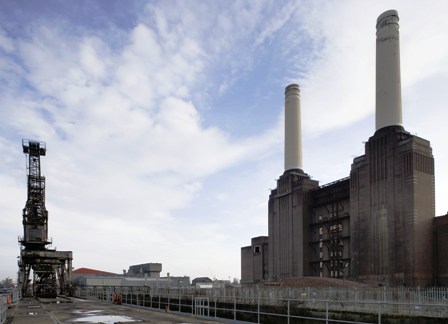
Battersea Power Station: how many cultural opportunities missed?
Edition number 30; dateline 30 April 2010
Culture: it's a numbers game
The middle of May 2010 will mark the tenth anniversary of the opening of Tate Modern. Few would disagree that the conversion of the Bankside power station is one of the great cultural triumphs of recent times, transforming a building, a major swathe of the capital city and, for many, perceptions of what modern art is and can be. Yet with success apparently all around, the director of Tate Modern, Vicente Todoli, has chosen to relinquish the helm of what has become one of the most celebrated galleries in the world. One of the contributory factors in his decision to stand down was the proposed £215 million extension to Tate Modern, a project that Todoli feared would come to dominate his role, making him more of a project manager than a gallery director. “Museums that get into enlargements tend to forget the here and now,” he said.
His decision serves to illustrate that success comes with its own challenges, a point that will not have been lost on the leaders of the main political parties as they prepared for the general election. How many of them have read Cultural Capital, the document compiled by some of the most influential cultural organisations to make the case for culture within the context of the current political debate, dominated as it is by talk of financial strictures and straitened public services. As a manifesto for culture the document contains plenty of food for thought and numerous challenges, reminding at least some of its readers that politics and the marshalling of public expenditure is not quite as simple as it is made to seem in the highly rehearsed and precisely staged television presentations that passed for political debate in the recent election campaign.
Cultural Capital makes it clear that culture (the document’s compilers did not include any sporty types, hence no reference to sport is included), like so many aspects of public life, comes down to a numbers game and that culture can stand its ground in such a debate. While the document makes a strong, argument, some recent news items have served only to emphasise that when it comes to the numbers there are fewer experts than we might imagine. A quick glance at April’s World of Leisure, which you can find elsewhere within the pages of The Leisure Review, reveals a few gems to illustrate the point. The social networking site Bebo, set up in 2005 and bought by the AOL corporation in 2008 for what they described at the time as good value at $850 million, is now considered by its owners to be virtually worthless and is to be closed down. The Commons defence committee says that there is likely to be £36 billion shortfall in Britain’s defence budget, a budget they describe as “unaffordable”. The Football Foundation is reported to be facing laying off staff after the Football Association, one of its three funding partners, says that it will have to cut its contribution by £4 million, a figure that equates to less than the annual salary of a well-established, although not necessarily world-class, player in the Premier League.
Having mulled over these gems of the accountant’s art, we can safely assume that no one knows anything when it comes to finance, value or the likelihood of success. Suddenly the figures in Cultural Capital look more convincing. Or perhaps less convincing. Either way, they are as convincing as any other figures we might find politicians offering up as evidence as to why they are to be trusted, even as they explain why what they said yesterday about tomorrow is not true today. As Tate Modern marks its tenth anniversary it is worth reminding ourselves of another anniversary with connections to the gallery, the building it occupies and even the architect who designed it. This year marks the thirtieth anniversary of a Conservative government declaring Battersea Power Station, another of Sir Giles Gilbert Scott’s industrial masterpieces, a heritage site. I wonder if the current leader of the Conservatives wondered at the lost opportunities, broken promises and wasted investments, and what they might have meant for the culture of the nation, as he stood in the roofless shell of the building to launch his party’s manifesto? I strongly suspect he did not.
Jonathan Ives
Editor
letter from the editor
The Leisure Review editorial
